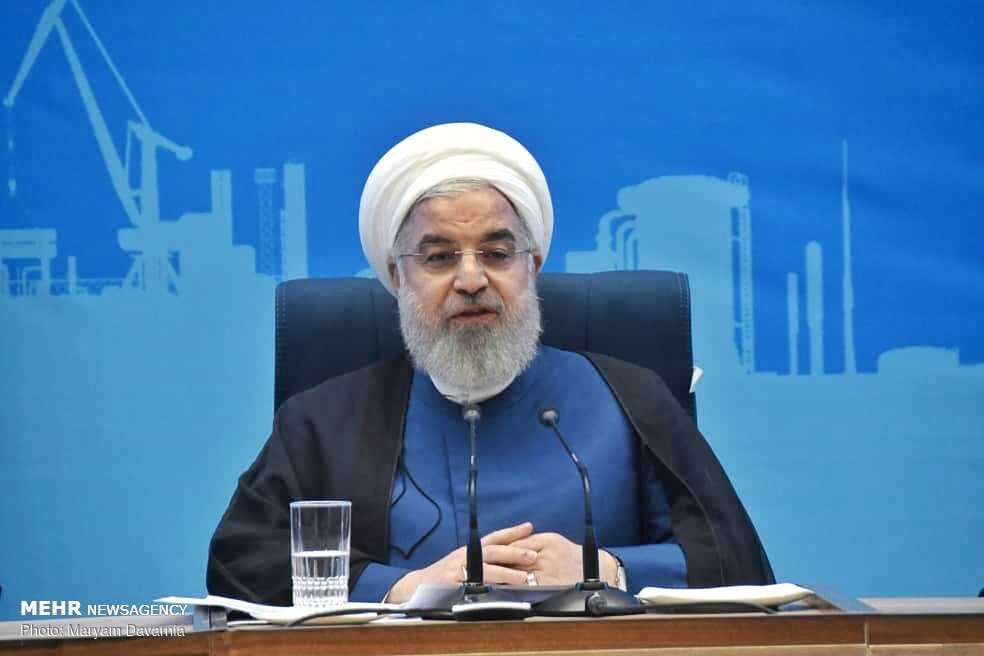Fighting smuggling should become systematic: Rouhani

TEHRAN – President Hassan Rouhani has urged systematic fight against smuggling “from the start to the end point”, citing the fight a key factor in improving Iran’s economy.
Speaking at a meeting of the Central Headquarters on Fighting Goods and Currency Smuggling in Tehran on Tuesday, Rouhani said while Iran is under sanctions, extra care should be given to stopping the smuggling of “hard-won” currency.
“Today, all necessary technical tools exist for monitoring and containment in all areas,” the president said.
Elsewhere in his speech, Rouhani said commercial companies which are known to respect laws and work transparently should be supported by the Ministry of Industry, Mine, and Trade.
He also said it is necessary that residents of border areas be able to sell fuel at modest discounts to the other side of the border, because “people residing in border areas are the greatest guardians of our borders and they should enjoy the benefits.”
According to some reports, over ten million liters of gasoline are smuggled out of Iran on a daily basis, adding up to 3.65 billion liters every year. Other reports put the number higher. On December 19, 2018 a government spokesman said everyday 11.5 million liters of gasoline is smuggled out of Iran. Ali Adyani, a member of the Iranian Parliament's Energy Committee has quoted various sources as putting the figure at 10, 15 and even 20 million liters a day.
Mohammad Hassan Nejad, another member of the committee, says the smuggled fuel amounts to 22 million liters per day. With a 50 cent per litre profit, the total daily income adds up to 400 trillion rials annually or $3.3 billion, nearly the same as the country's annual development budget.
In addition to gasoline smuggling, other fuels such as kerosene and diesel are also smuggled; not in lesser quantities.
Oil Minister Bijan Zanganeh once ruled out that figure, saying it is logistically impossible to carry that much gasoline across the border every day.
Rouhani also appreciated measures to counter the smuggling of gas oil out of Iran. “Good measures have prevented the daily smuggling of 8 million liters of gas oil from the country,” he said and stressed the role of startup companies in monitoring, tracing, and controlling incoming and outgoing goods in order to fight smuggling.
In mid-July, the Islamic Revolution Guard Corps seized a foreign tanker and 12 crew members accused of smuggling Iranian fuel.
Quoting a Guard statement, the media said the tanker was caught transporting smuggled Iranian fuel to unspecified foreign customers.
In his Tuesday meeting, Rouhani also called for swift action against companies which have received dollars at state rate (lower than free market rate) for import of essential goods, but have not kept their promise to import the goods they must have.
“If the receiving end of the currency has not imported the goods they should have, they are in default of law. They have in fact smuggled currency. Things should be clarified and the criminal should face legal action,” he stressed.
Currently, Iran has three exchange rates: the open market rate, the official rate and the NIMA rate.
The open market range is the exchange rate that most accurately reflects how many rials it takes to buy one U.S. dollar. The most accessible and commonly quoted rate throughout the country, the open market rate more than tripled in the past year and a half. But in the last three months, it’s roughly stabilized, with around 120,000 rials now fetching $1.
NIMA is the Persian acronym for an online currency system launched by the Central Bank of the Islamic Republic of Iran (CBI) in April 2018. Put simply, it’s a market where Iranian exporters can sell their foreign currency earnings for Iranian rials. The NIMA exchange rate places a higher value on the rial than the open market rate.
SP/PA
Leave a Comment